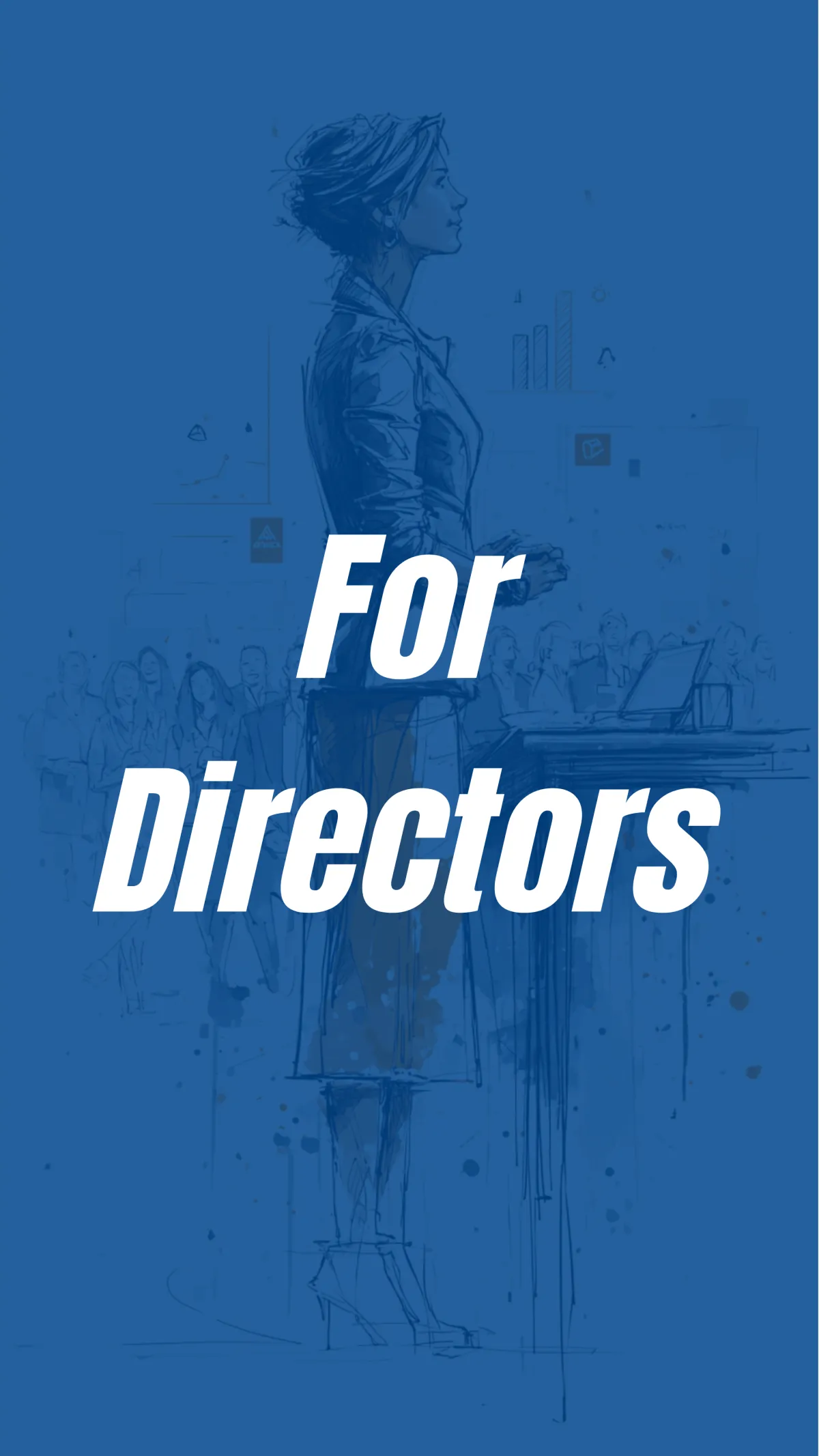
How Should Brokers Budget for Impactful Events?
Budgeting for impactful events can be a game-changer for real estate brokers. It involves more than just allocating funds for gatherings; it requires strategic planning aligned with your business goals. So, how should brokers budget for impactful events to get the best results? Let's explore practical tips and strategies to help you optimize your event budget and make every dollar count.
Ready to turn these insights into real revenue for your real estate business? Stop struggling with marketing that doesn't deliver results. In just 20 minutes, we'll create a customized plan to help you implement these strategies and grow your business. No fluff, no cookie-cutter approaches – just practical solutions tailored to your specific challenges. Book your complimentary discovery call today at https://lesix.agency/discovery and start seeing real results.
Understanding the Importance of Event Budgeting
How should brokers budget for impactful events? Events are powerful relationship-building and lead-generation tools for brokers. They provide opportunities to showcase properties, connect with clients, and build brand awareness. However, without careful event budgeting, these initiatives can quickly deplete resources without delivering the desired outcomes.
A well-structured budget plan serves as a financial roadmap for your event. It aids in prioritizing spending, anticipating costs accurately, and preventing financial surprises. Furthermore, a clear budget allows for effective measurement of the return on investment (ROI), demonstrating the event's value to your brokerage.
Effective budget management is crucial for maintaining fiscal responsibility. It shows stakeholders that resources are being used wisely. Mastering event budgeting allows brokers to host impressive events consistently, contributing to long-term business growth.
How Should Brokers Budget for Impactful Events? Steps to Create an Effective Event Budget
Creating a comprehensive event budget involves several key steps. Meticulous attention during this phase sets the stage for a financially sound and successful event. Following a structured approach helps prevent overlooking critical financial details.

1. Define Your Event Goals
Before allocating a single dollar, clarify your objectives for the event. Are you aiming to generate a specific number of qualified leads? Do you want to enhance client loyalty or celebrate milestones? Perhaps the goal is to launch a new high-profile listing or recruit new agents to your team.
Your event goal directly influences budget allocation decisions. Clear objectives help determine which elements are essential and where spending should be focused. For instance, an event focused on lead generation might prioritize marketing and follow-up activities, while a client appreciation event might invest more in the event experience, such as high-quality catering or entertainment.
Make your goals SMART: Specific, Measurable, Achievable, Relevant, and Time-bound. This framework adds clarity and makes it easier to evaluate success later. Aligning event goals with broader brokerage key performance indicators (KPIs) reinforces the event's strategic importance.
2. Estimate Attendance Accurately
The projected number of attendees is a fundamental factor influencing almost every event expense category. Venue size, catering quantities, staffing needs, and material costs all scale with attendance. Accurate estimation is vital for effective event planning.
Base your estimates on historical data from similar past events, RSVP tracking from your invitations, and industry benchmarks if available. Consider segmenting your invitee list and estimating response rates for each group. It's often wise to be slightly conservative or build in flexibility rather than underestimating and facing shortages.
Regularly monitor RSVPs as they come in and adjust your projections accordingly. Communicate updated numbers to your vendors promptly. Accurate attendance forecasting helps avoid overspending on unused resources or underspending and compromising the guest experience.
3. Break Down Costs Meticulously
Compile an exhaustive list of all potential event expenses. This detailed budget breakdown should capture every anticipated cost, no matter how small. Categorizing expenses helps in organization and tracking.
Common cost categories include:
Venue Rental: Consider base fees, potential additional charges for specific spaces or extended hours.
Catering: Include food, beverages, staffing, equipment rentals (linens, tableware), and service style (buffet, plated, stations).
Marketing & Promotion: Budget for invitations (print or digital), advertising, social media campaigns, and signage.
Staffing: Account for event staff, security, registration personnel, and potentially an event planner.
Audio/Visual (AV) Equipment: Factor in costs for sound systems, microphones, projectors, screens, lighting, and technical support. Consider needs for presentations or live streaming.
Decor: Allocate funds for centerpieces, linens, lighting design, floral arrangements, and thematic elements in your decor budget.
Printed Materials: Include costs for name badges, agendas, brochures, or handouts.
Transportation & Accommodation: Budget for guest or speaker travel accommodation if applicable, and potentially guest parking or shuttles.
Speakers & Entertainment: Factor in fees for guest speakers, musicians, DJs, or other performers.
Technology: Include costs for event management software, registration platforms, event apps, or Wi-Fi access.
Contingency: Always include a buffer for unexpected costs.
Don't overlook less obvious costs like permits, insurance, licenses, credit card processing fees, taxes, and gratuities. These seemingly small items can significantly impact the final event's financial picture if not planned for. A comprehensive event budget anticipates these details.
4. Research and Get Quotes
Avoid relying on assumptions or outdated pricing for your budget plan. Actively research potential vendors and obtain detailed quotes for each expense category. Contact multiple suppliers to compare pricing models and service offerings.
Remember that the lowest price tag does not always equate to the best value. Evaluate vendors based on quality, reliability, experience, and reviews alongside cost. A vendor offering excellent customer support and flexibility might be worth a slightly higher investment, contributing more to a successful event.
Provide potential vendors with clear specifications about your event details and requirements. This helps them provide accurate quotes. Document all quotes received and use them to refine your detailed budget estimates.
5. Build in a Contingency Fund
Even with the most meticulous attention to planning, unexpected expenses frequently arise. A last-minute need for additional AV equipment, a higher-than-anticipated number of guests accepting, or unforeseen weather-related costs can strain your budget. Including a contingency fund is essential for fiscal responsibility.
Allocate typically 10-20% of your total projected event expenses to this fund. This buffer provides crucial flexibility to handle unforeseen expenses without derailing your overall financial plans. It safeguards the event's financial integrity.
If the contingency fund isn't fully used, the remaining amount can be considered savings or reallocated strategically. Having this safety net reduces stress and allows the event organizer to focus on execution. It prepares you for those inevitable unexpected costs.
Strategies to Maximize Your Event Budget
Making the most of your allocated funds requires smart strategies and sometimes creative thinking. Maximizing your event budget doesn't always mean cutting costs drastically; it means spending wisely to achieve the greatest impact. Let's explore key strategies.
1. Prioritize Spending Based on Goals
Not every budget line item carries the same weight in achieving your event objectives. Identify the key components that will most significantly influence the event experience and contribute to your goals. Allocate a larger portion of your budget to these high-priority areas.
For example, if networking is paramount, invest in a venue conducive to interaction, name badges, and perhaps an event app facilitating connections. If property showcasing is the focus, prioritize high-quality photography/videography, staging, and presentation technology like good sound systems. Balancing quality and cost is critical here.
Conversely, identify areas where you can potentially save money without compromising the core objectives or overall quality. This strategic budget allocation ensures resources are focused where they matter most.
2. Seek Strategic Sponsorships
Collaborating with sponsors can significantly alleviate budget constraints and enhance the event's offerings. Identify businesses or organizations whose target audience aligns with your event attendees. This could include mortgage lenders, title companies, home inspectors, or local lifestyle brands.
Approach potential sponsors with a clear proposal outlining the benefits of partnership, such as brand visibility, networking opportunities, or speaking slots. Potential revenue sources from sponsorships can cover specific event expenses like catering or entertainment. Ensure sponsorship integrations feel natural and add value for attendees.
Clearly define sponsorship levels and associated benefits. Maintain transparency and fulfill all agreed-upon deliverables. Well-chosen sponsorships can elevate the event experience while demonstrating smart budget management.
3. Leverage Technology Wisely
Technology offers numerous ways to streamline event management, enhance attendee engagement, and potentially save money. Utilize event management software for efficient registration, communication, and budget tracking. Many platforms charge monthly or per event, so compare pricing models.
Consider digital invitations and marketing materials to reduce printing and postage costs. Implement an event app to provide schedules, speaker bios, and networking features, reducing the need for printed guides. Explore options like live streaming to extend your event's reach to a wider audience without increasing physical venue costs.
Use social media platforms strategically for promotion and engagement before, during, and after the event. A dedicated event hashtag can encourage user-generated content and amplify your message cost-effectively. Effective use of technology can greatly affect efficiency and reach.
4. Master Vendor Negotiations
Don't accept initial quotes at face value; there is often room for negotiation with vendors. Build rapport and clearly communicate your budget constraints and event needs. Strong negotiation skills can lead to significant savings or added value.
Ask about potential discounts for booking multiple services, paying upfront, or choosing off-peak dates or times. Explore package deals that bundle services like venue, catering, and AV equipment. Be prepared to offer flexibility on minor details if it leads to better pricing.
Review contracts carefully, paying close attention to inclusions, exclusions, and potential additional charges. Understanding vendor contracts protects you from unexpected expenses down the line. Cultivating good relationships with reliable vendors can lead to better terms over time.
5. Reuse, Repurpose, and Rent
Adopt a sustainable and cost-effective approach by thinking about how event materials can be reused or repurposed. Design signage and banners without specific dates so they can be used for future events. Choose decor elements that can be incorporated into office decorations or given as client gifts post-event.
Instead of purchasing expensive equipment used infrequently, such as specialized AV equipment or decor items, consider renting. Renting provides access to high-quality items without the long-term cost and storage issues. This approach helps save money and reduces waste.
Think digitally where possible. Share presentations or follow-up materials electronically instead of printing large quantities. This mindset of resourcefulness stretches your budget further.
Tracking and Managing Your Event Budget

Creating the budget is just the first step; ongoing tracking and management are crucial for staying on course. Implement a system for monitoring event expenses as they occur. This could be a detailed spreadsheet or specialized event management software.
Regularly compare actual spending against your budgeted amounts for each line item. This allows you to identify potential overspending early and make necessary adjustments. Assigning someone responsibility for budget oversight helps maintain accountability.
Establish a clear process for approving expenses and making payments. Keep all invoices and receipts organized for accurate reconciliation. If budget constraints arise or costs shift, be prepared for reallocating funds from lower-priority areas to cover essential needs, always keeping the event's scope in mind.
Maintaining financial integrity throughout the event planning process builds trust and credibility. Diligent tracking provides valuable data for future financial forecasting and improves budgeting accuracy over time. Comparing projected versus actual spending is a key part of this process.
Measuring ROI on Your Event Budget
Ultimately, the success of your event budget is measured by the return on investment it generates. A post-event analysis is essential to determine if the event achieved its goals and if the spending was justified. It's vital to connect event outcomes to financial investment.
Define key performance indicators (KPIs) based on your initial event goals. Metrics could include the number of new leads generated, client retention rates, deals closed originating from event connections, website traffic increases, social media engagement levels, or positive media mentions. Collect feedback through surveys to gauge attendee satisfaction and perceived value.
Calculate the ROI by comparing the total event cost against the quantifiable benefits achieved. For lead generation, track the conversion rate of event leads into clients and the associated revenue. While some benefits like brand building are harder to quantify directly, track related metrics over time.
This evaluation provides concrete evidence of the event's impact and informs future financial decisions. Understanding ROI helps justify event spending within your overall marketing strategy and marketing budget. It also highlights areas for improvement in future event planning and budget allocation.
Balancing Quality and Cost
A common challenge in event budgeting is balancing quality with cost constraints. While it's important to be mindful of expenses, cutting corners too much can negatively impact the event experience and undermine your goals. Finding the right equilibrium is key.
Identify areas where quality is non-negotiable and directly impacts attendee perception, such as venue ambiance, food quality, or speaker caliber. Allocate sufficient funds to these critical elements. Look for savings in areas that have less impact on the core experience, perhaps by simplifying decor or choosing cost-effective marketing channels.
Get creative to deliver high perceived value without a high price tag. Focus on elements like personalized touches, excellent customer service from staff, or facilitating meaningful connections. Sometimes, the most memorable aspects of an event aren't the most expensive ones.
Communicate openly with vendors about your need for balancing quality and budget. They may have suggestions or alternative solutions that meet both requirements. Making smart choices ensures a successful event that feels premium without unnecessary extravagance.
Common Budgeting Pitfalls to Avoid
Effective event budgeting requires avoiding common mistakes that can lead to financial stress and compromise event success. Awareness of these potential pitfalls helps brokers plan more effectively. Avoiding these traps maintains financial control.
Here are some frequent errors event organizers encounter:
Underestimating Hidden Costs: Failing to account for taxes, service charges, permit fees, insurance, security, overtime for staff, or additional charges from vendors can derail a budget.
Scope Creep: Allowing the event's scope to expand beyond the initial plan without adjusting the budget accordingly. This often happens with last-minute additions or upgrades.
Inaccurate Attendance Forecasting: Grossly overestimating or underestimating attendance leads to wasted resources or shortages that affect the guest experience.
Ignoring Small Expenses: Focusing only on large ticket items while letting small costs accumulate unchecked can lead to significant overspending.
Insufficient Contingency: Not allocating an adequate contingency fund leaves no room to manage unforeseen expenses or emergencies.
Poor Tracking: Failing to diligently track expenses against the budget throughout the planning process allows spending to spiral out of control unnoticed.
Neglecting Post-Event Costs: Forgetting to budget for post-event activities like follow-up communications, data analysis, or final invoice payments.
Proactive planning and vigilant budget management help mitigate these risks. Learning from past experiences, whether your own or industry best practices, improves fiscal responsibility for future events. Thorough event planning considers these potential issues from the start.
Conclusion
So, how should brokers budget for impactful events? The answer lies in strategic planning, clear goal setting, meticulous cost breakdown, diligent tracking, and a focus on value. By approaching event budgeting methodically, brokers can create memorable and effective in-person events or even hybrid experiences that yield significant returns without overspending.
Remember that a well-managed event budget is more than a spreadsheet; it's a strategic tool that guides decision-making throughout the event management lifecycle. Prioritizing spending based on goals, leveraging technology, seeking sponsorships, and mastering negotiation skills all contribute to maximizing impact. Consistent post-event analysis refines your approach, making each subsequent event budget more accurate and effective.
By applying these principles, brokers can confidently invest in events as a powerful component of their marketing strategy. Thoughtful event budgeting ensures these initiatives effectively build relationships, generate leads, and enhance brand presence in the competitive real estate market. Ultimately, smart financial planning supports the creation of a truly successful event.
Don't let another day pass without a clear marketing strategy that actually works. In just 20 minutes, we can develop a customized plan to help you implement these ideas and start generating real revenue. Our discovery calls have helped hundreds of real estate professionals just like you transform their marketing from a source of stress to a growth engine. Take the next step now – visit https://lesix.agency/discovery to book your complimentary session and start building the business you deserve.










